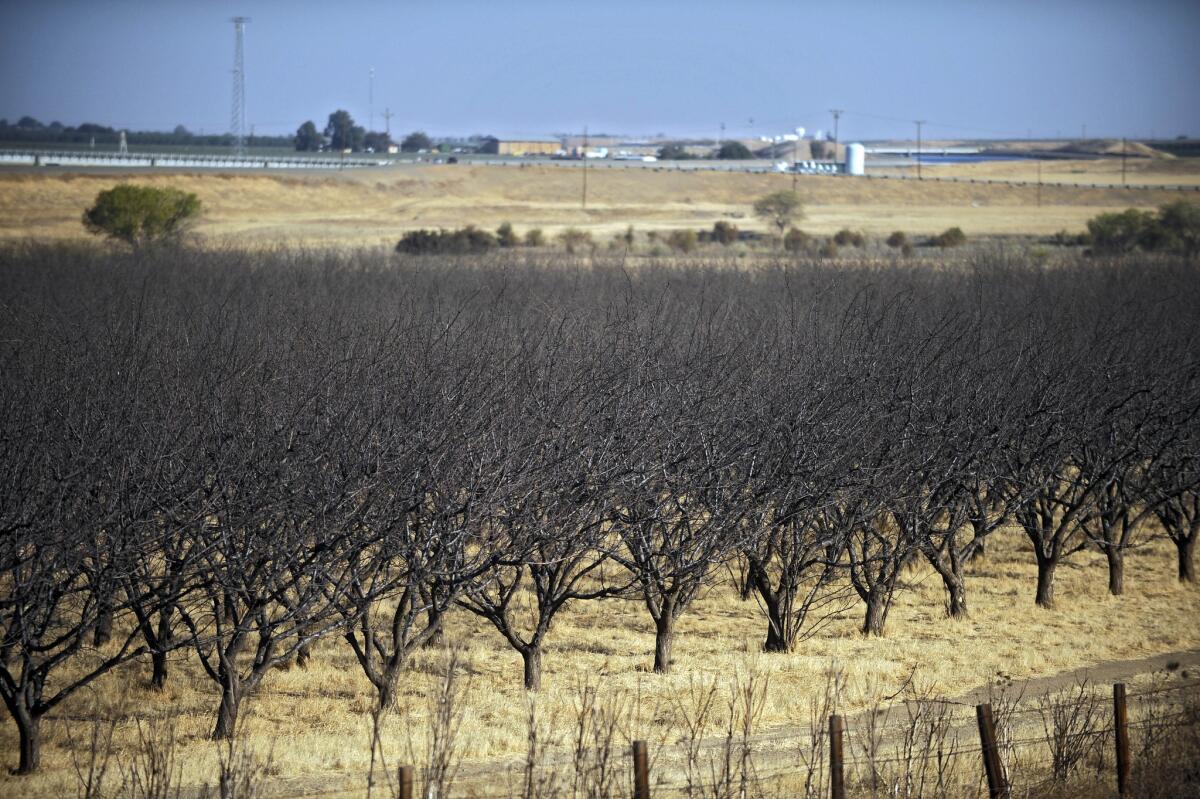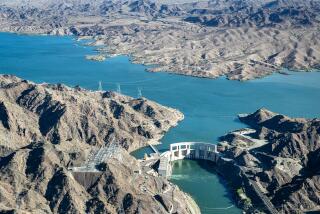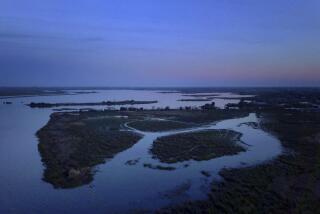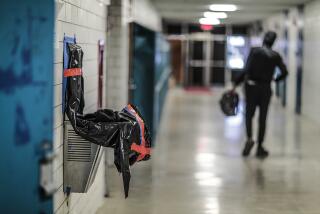GOP introduces drought relief bill, key step in reopening water debate in Congress

Dead almond trees are seen in California’s Westland Water District near Fresno on Oct. 2, 2009.
California House Republicans introduced a drought-relief bill Thursday afternoon that they said would pump more water to struggling farmers in the Central Valley without compromising protections for endangered fish.
The 170-page bill, though unlikely to reach President Obama’s desk in its current form, is a significant step in laying out the GOP position in the debate over how the federal government should respond to a four-year drought.
Like prior efforts, the bill is already facing opposition from environmental groups and Democrats who say the changes would harm the environment and undermine protections for endangered species.
Republicans who drafted the bill argue that it would push federal regulators to use more modern science when carrying out policies designed to replenish endangered fish stocks in the Sacramento-San Joaquin River Delta.
They said they would change the approach to measuring fish stocks, for example, by including farm-raised fish when counting endangered species and searching deeper into channels to further raise counts.
The bill would also require federal officials to raise pumping levels and seek other alternatives to protect fish before slowing the water supply.
Overall, the bill would shift the burden on water managers to loosen pumps, requiring greater justification to restrict the water supply. It would also set deadlines intended to speed up federal reviews of several water storage projects.
The bill, authored by Rep. David Valadao (R-Hanford) and backed by Majority Leader Kevin McCarthy (R-Bakersfield) and other California Republicans, had been expected for several weeks. It is likely to pass the GOP-controlled House, despite Democratic objections.
“Inaction will result in the collapse of our domestic food supply,” Valadao said in a statement. “Congress cannot make it rain but we can enact policies that expand our water infrastructure, allow for more water conveyance, and utilize legitimate science to ensure a reliable water supply for farmers and families.”
House Democrats have proposed several bills that emphasize conservation and would spend $1 billion to $2 billion in the next few years on a variety of projects including desalinization, incentives for water-efficient products and research.
Republicans, whose bill does not provide money for projects, have criticized the Democrats’ proposals as inadequate and costly.
Republican officials who crafted the latest bill, briefed reporters in a phone call Thursday under the condition that their names not be used. They said their bill presents a “new paradigm,” designed to bridge differences with moderate Senate Democrats with whom they could ultimately forge a deal.
Republicans control the Senate but need support from six Democrats to overcome a filibuster. They would also likely need support from Gov. Jerry Brown, who has opposed prior GOP bills, to avoid a veto from Obama.
“I’m disappointed to see that this is the same old frontal assault on fish and the environment,” said Rep. Jared Huffman (D-San Rafael). “They’re trying to congressionally micro-manage the most complex water system in the world.”
The sides began negotiations on a water bill last year but failed to reach a deal before Congress adjourned. Sen. Dianne Feinstein, the California Democrat, had been Republicans’ main negotiating partner. Feinstein is also working on a proposal but has not yet released it.
“The drought bill introduced today in the House includes some useful provisions to increase the flexibility of water delivery as well as some provisions that would violate environmental law, which I’ve said many times I cannot support,” Feinstein said in a statement.
“I continue to believe we need a comprehensive approach with both short- and long-term solutions to include increased flexibility as well as desalination, water storage and water recycling,” she said.
Twitter: @noahbierman
More to Read
Get the L.A. Times Politics newsletter
Deeply reported insights into legislation, politics and policy from Sacramento, Washington and beyond. In your inbox three times per week.
You may occasionally receive promotional content from the Los Angeles Times.







